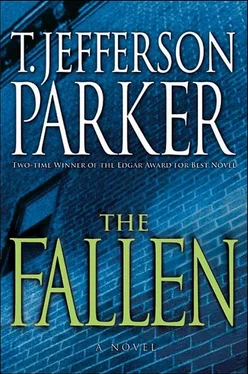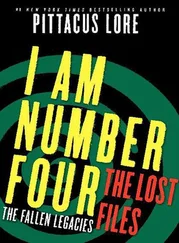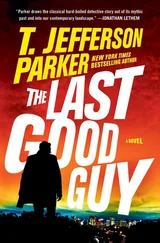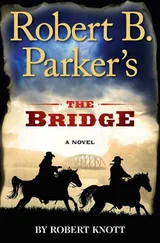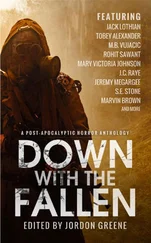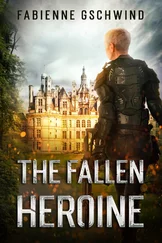1 ...7 8 9 11 12 13 ...75 We drove past the Hidden Threat Assessment building before spotting the number, so McKenzie spun a U-turn and bounced my mushy Chevrolet take-home into the parking lot.
“Look at all that mirrored glass,” said McKenzie. “They don’t even put their name on the building, just HTA. And check over there — the Enzo. That’s six-hundred fifty horses you’re looking at. Sick. Oh, man, now that’s a car.”
It was a red Ferrari and the license plate read H-THREAT. I wondered if it had been parked briefly alongside Highway 163 the night Garrett was shot. I wondered how many red Ferraris there are in San Diego.
Hollis Harris met us at the security desk in the gleaming lobby. He was about my age. Thirty tops. He was small, slender, almost bald, and dressed in black — shoes, trousers, belt, golf shirt, watch. His face was trim, and his gaze was open and opinionless.
We stopped at a coffee-and-sandwich cart. Harris got a triple espresso, black.
“I’m trying to cut back,” he said.
“How many a day?” asked McKenzie.
Hollis ducked his head and frowned. “Three? Okay, four, but four max.”
“I’d be bouncing off the walls,” she said.
“Maybe that’s why I only sleep five hours a night.”
“How do you feel in the mornings?”
“Actually,” said Harris, “great.”
His fourth-story office was large, uncluttered, and bright with late-morning light. The floor was buffed maple, and his curved desk was stainless steel. Most of the fixtures were stainless steel, too. There were windows on two sides and white walls on the other. A huge painting took up most of one wall — it showed the back end of a Ferrari speeding away from you. A collection of photographs of Hollis Harris with various celebrities graced the other.
We sat at a suite of stainless and cream leather furniture in front of one of the big picture windows. Harris clapped his hands softly twice and a sun filter descended from the ceiling. As it lowered I watched the vivid optics of the Soledad Highway and San Clemente Valley soften and retreat.
“I’d talked to Garrett Asplundh several times over the last two years,” said Harris. “At first he was interested in HTA’s financial relationships with the Department of Homeland Security and the CIA and some of the casinos in Las Vegas and San Diego County. And, of course, with the City of San Diego. So I opened our books to him, everything from contracts to payroll. I didn’t see him for three months.”
“I take it your accountants had done their jobs,” said McKenzie, looking from her notepad to Harris.
“Our books are as clean as this floor,” said Harris. “HTA makes good money and there’s no reason to cheat, lie, or steal. I don’t have the time or interest for that.”
I was reading through Asplundh’s notes on HTA while Harris talked. “Garrett said you — HTA — donated a hundred and fifty grand to the Republican Party in 2003, trying to get the governor recalled.”
“We did,” said Harris. “We also donated a like amount to the Democratic Party, to help them field a good candidate of their own. We’re not a political company here. But we do believe in the state of California. I was born in this state. Lived here all my life. It means something to me.”
I looked into Hollis Harris’s steady eyes. “Garrett met you here at five o’clock the day before yesterday — the day he died.”
“Right,” said Harris. “We talked about developing Hidden Threat Assessment software for the Ethics Authority.”
“What exactly is ‘hidden threat assessment’?” asked McKenzie.
Harris sat forward on the edge of the cream-colored sofa, like he was getting ready to jump up. “The heart of it is a software system that lets databases talk to each other in real time. I got the idea back in high school. My dad worked for TRW and he was always complaining that the information was out there but he couldn’t get it in time. The information is out there but I can’t get it in time . So I designed him a program for my computer class and got an A on it. I sold it to TRW for half a million dollars when I was eighteen. That was enough to begin this company. We’ve gone bankrupt twice and bounced back twice. I’ve lived everywhere from ratty downtown hotels to mansions in La Jolla. Mansions are better but ratty hotels save you time on upkeep. Work ruined my marriage but I won’t make the same mistake again. I have a wonderful young son. Last year this company did over forty-five million and we’re on track to beat that this year. By a lot.”
“How did you write a program like that as a high-schooler?” asked McKenzie.
Harris shrugged. “I don’t actually know. It’s a knack. When I deal with coded information it becomes aural to me. Musical. I hear it. I hear ways that sounds — they’re not sounds actually, they’re megs and gigs and beyond — can be harmonious and advantageously cadenced. As soon as you stack information like that, massive amounts of it can be digitally fitted and synchronized. Then it can flow, literally, at the speed of electricity. It’s not all software. You need some special machines to run an HTA program. I designed them. It’s hard to explain.”
“Guess so,” said McKenzie.
I was half tempted to tell Hollis Harris that I could see the shapes and colors of emotions behind spoken words. But only half. It’s not a parlor trick. If news of that got back to headquarters on Broadway it would hurt me sooner or later. My advancement has been greased by my apparently miraculous recovery from the fall, and by my minor and unasked-for celebrity. I may be “different” enough to see shapes and colors when people talk, but I’m not different enough to admit it to anyone but Gina.
“How does it assess threat?” I asked.
“It finds hidden connections between people that could be threatening,” said Harris. “It finds them instantly, in real time. Say that Person A applies for a job here. We run him through a basic HTA protocol. HTA discovers that his ex-wife’s former roommate’s brother is a convicted embezzler and that Person A and the convicted embezzler now share the same home address. It takes ten seconds. And guess what? We don’t hire Person A. We show him the door. From casinos to the federal government, everybody needs HTA. I call HTA ‘a symphony of information.’ But it’s more like twenty symphonies, crammed into the length of a sound bite.”
“Impressive,” said McKenzie.
“Impressive, Ms. Cortez?” asked Harris, smiling, then swallowing the last of his espresso. “It’s almost unbelievable. We’re currently running at five degrees of separation. We’ll be up to eight degrees by the end of next year. We’re doing a job for Border Patrol right now — you put your index finger into the scanner down at the border in San Ysidro or TJ, and guess what? I’ve got the following databases digging into your past like earthmovers on speed: Homeland Security, INS, the DEA, the Border Patrol, the San Diego Sheriff Department, the San Diego PD, the Interagency Border Inspection System, and the Automated Biometric Identification System — and that’s not all. Let me take a breath and continue: the Treasury Enforcement Communications System, the Deportable Alien Control System, the Port of Entry Tracking System, the National Automated Immigration Lookout System, and the San Diego User Network Services system. I get winded when I talk about my work, so let me take another deep breath and keep going: the Computer Linked Application Information System and the National Crime Information Center of the FBI, and I’m going to have these bases talking to each other as fast as electricity in a phone line. I’m going to be able to tell everything about you — physical, financial, criminal, social. I’ll have the name, address, and Social Security number of the doctor who pulled your tonsils when you were four, and I’ll know exactly how much your cell phone bill was last month, and I’ll have the name and address of your allegedly secret lover by the time you get your finger out of the scanner. If you are a threat, you will be exposed. If you might be a threat, you will be exposed. If you are only the reflection of a shadow cast by the memory of a possible threat, you will be exposed. Now that, Detective Cortez, is impressive.”
Читать дальше
Конец ознакомительного отрывка
Купить книгу
